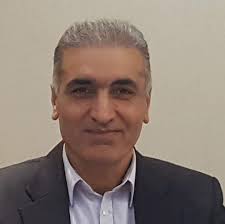-
Syrian conflict: Power-sharing or sectarian authoritarianism?

At first glance, the ongoing Syrian conflict presented and coded as an ethno-sectarian civil war moving towards a decisive military victory by Bashar Al-Assad's regime.
Such a conclusion is expressed by Syrian government officials emphasizing their intention to retain an absolute hold on power. The upcoming so-called 'presidential elections' on the 26th of May will definitely re-elect "re-appoints" Al-Assad which affirm the regime's view and intention. Consequently, it seems the Syrian experience of conflict confirms those power-sharing agreements are more likely when no side can prevail on the battlefield. However, the civil war is a proxy war with high levels of regional and international intervention, both state and non-state actors alike. As a result, Syrian territories have been divided into three regional governments- Russia, Iran and Hezbollah are backing the Syrian regime and have a direct stake in the terms on which Syria's conflict ends. Similarly, Turkey now occupies parts of northwest and northeast Syria, mainly the Kurdish areas, and has placed all of these occupied areas under the authority of the provincial governor of its own Turkish province. Whereas, the Kurdish areas in the northeast lead by the US-backed Syrian Democratic Forces (SDF).
Given these circumstances, the Syrian regime still attempts to reimpose its monopoly rule over a unified Syrian state on all country's territory and so far in the name of "national sovereignty". Despite its dependence on the Russian military and economic support, the regime has rejected UN resolution (2254) and still not responding, practically, to diplomatic efforts to achieve a negotiated settlement or tendency to share power. Simultaneously, Turkey-backed Syrian opposition seems is sharing the same views with the Assad's regime in terms of rejection of power-sharing or self-governance and call for a central state based on sectarian and Islamic ideology following Turkey's agendas first.
Throughout the Syrian conflict, both sides- Assad's regime and the opposition have been rejected any forms of power-sharing, and decentralization such as regional autonomy or federation that would protect country’s unity. They argue, such a system of power-sharing will threaten the state sovereignty and unity, and eventually so will divide the country, despite the fact that Syria has, in fact, been divided by internal and external actors.
Nevertheless, the Syrian conflict is not over, and there is still a chance for Syria to rule some kind of power‐sharing agreement. Therefore, Syria’s experience offers some insights into how non‐negotiated, imposed power‐sharing frameworks might emerge as the result of external intervention in the Syrian civil war. The international system is full of such hybrid forms of imposed power‐sharing that cannot be ruled out as possible features of an outcome in the Syrian case. The most common cases are imposed or de facto forms of power‐sharing, the Syrian conflict for example, in which external actors engage with local authorities directly, otherwise the country much more likely to face eventual division.
by: Zara Saleh

You May Also Like
Popular Posts
Caricature
BENEFIT Sponsors BuildHer...
- April 23, 2025
BENEFIT, the Kingdom’s innovator and leading company in Fintech and electronic financial transactions service, has sponsored the BuildHer CityHack 2025 Hackathon, a two-day event spearheaded by the College of Engineering and Technology at the Royal University for Women (RUW).
Aimed at secondary school students, the event brought together a distinguished group of academic professionals and technology experts to mentor and inspire young participants.
More than 100 high school students from across the Kingdom of Bahrain took part in the hackathon, which featured an intensive programme of training workshops and hands-on sessions. These activities were tailored to enhance participants’ critical thinking, collaborative problem-solving, and team-building capabilities, while also encouraging the development of practical and sustainable solutions to contemporary challenges using modern technological tools.
BENEFIT’s Chief Executive Mr. Abdulwahed AlJanahi, commented: “Our support for this educational hackathon reflects our long-term strategic vision to nurture the talents of emerging national youth and empower the next generation of accomplished female leaders in technology. By fostering creativity and innovation, we aim to contribute meaningfully to Bahrain’s comprehensive development goals and align with the aspirations outlined in the Kingdom’s Vision 2030—an ambition in which BENEFIT plays a central role.”
Professor Riyadh Yousif Hamzah, President of the Royal University for Women, commented: “This initiative reflects our commitment to advancing women in STEM fields. We're cultivating a generation of creative, solution-driven female leaders who will drive national development. Our partnership with BENEFIT exemplifies the powerful synergy between academia and private sector in supporting educational innovation.”
Hanan Abdulla Hasan, Senior Manager, PR & Communication at BENEFIT, said: “We are honoured to collaborate with RUW in supporting this remarkable technology-focused event. It highlights our commitment to social responsibility, and our ongoing efforts to enhance the digital and innovation capabilities of young Bahraini women and foster their ability to harness technological tools in the service of a smarter, more sustainable future.”
For his part, Dr. Humam ElAgha, Acting Dean of the College of Engineering and Technology at the University, said: “BuildHer CityHack 2025 embodies our hands-on approach to education. By tackling real-world problems through creative thinking and sustainable solutions, we're preparing women to thrive in the knowledge economy – a cornerstone of the University's vision.”
opinion
Report
ads
Newsletter
Subscribe to our mailing list to get the new updates!




















